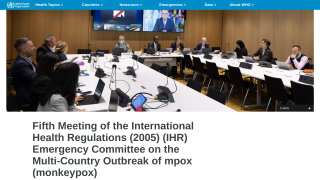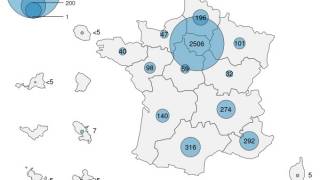Local Clade Ib Mpox Cases Confirmed in England

The UK Health Security Agency (UKHSA) today announced it had detected a confirmed human case of Clade Ib mpox, in which the person who resides in the North East of England had no reported travel history and no reported link with previously reported mpox cases in the UK.
England has reported 11 mpox cases this year.
As of April 7, 2025, the UKHSA says the mpox risk to the UK population remains low, as clade Ia and Ib mpox are no longer classified as a high-consequence infectious disease.
To date, all previous cases in the UK have either been linked to someone who has traveled to an affected country or been linked to someone who has.
UKHSA Mpox Incident Director Dr Gillian Armstrong commented in a media release, "The risk to the UK population from mpox remains low."
"The majority of people who have presented with symptoms report close physical contact, including massages or sex, before developing symptoms."
"While mpox infection is mild for many, it can be severe for some, and UKHSA is committed to preventing its spread within the UK."
Currently, the UK government has authorized an approved mpox vaccine known as IMVAMUNE® (JYNNEOS®, MVA-BN®).
Whether you have travelled or not, it is essential to remain alert to the risks. Anyone who thinks they may have mpox should contact NHS 111 for advice on what to do, says the UKHSA.
Recently, the U.S. CDC updated its Level 2 Travel Health Advisory, saying, 'There is ongoing person-to-person transmission of mpox in Burundi, Central African Republic, Democratic Republic of the Congo, Kenya, the Republic of the Congo, Rwanda, Tanzania, Uganda, and Zambia.'
'Person-to-person transmission has occurred through various means during this outbreak.'
About 15 million people visited central Africa last year, many traveling from the U.S. and the UK.
The CDC, like the UK, recommends mpox vaccination for at-risk individuals.
Our Trust Standards: Medical Advisory Committee





